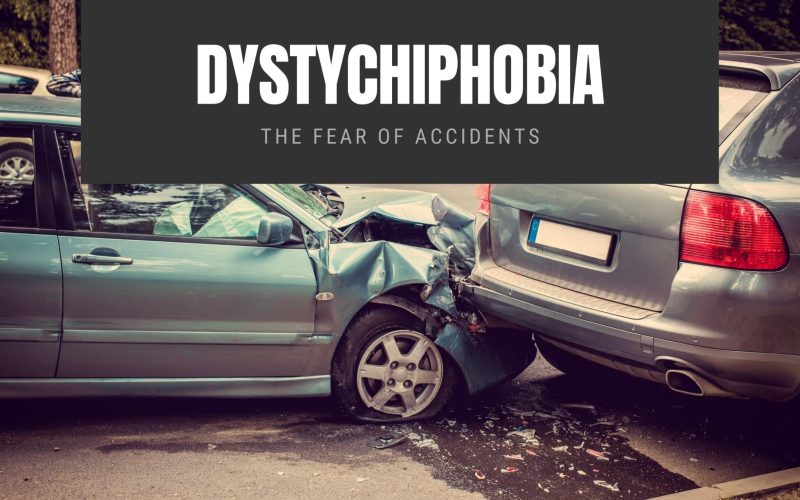Dystychiphobia is defined as an extreme and irrational fear of accidents. A sufferer of this condition is obsessed with thoughts relating to accidents – Prevention of accidents, what to do when involved in an accident, or the possibility of being helpless at the occurrence of accidents.
But this depends on the severity of the condition, sufferers with severe dystychiphobia have their lives remarkably altered by their fears; This disrupts their normal day to day lifestyle and their wholistic health including their occupational, social, mental and emotional health.
The danger is real, and everyone should take precautionary measures to ensure that they and their loved ones are safe from accidents.
Somehow, the thought of being involved in an accident causes us to feel some level of fear- the fear of pain, the fear of having to lose one or more of your body parts, the fear of going lame or losing your mind, and the fear of never being able to recover.
But when the fear of accidents repeatedly comes extremely and irrationally, then the person is said to be in this condition. The individual could be in a perfectly safe condition or environment, far from danger; thus, the fear cannot be justified but rather termed “irrational.”
Sometimes, dystychiphobia could be a result of trauma, and the individual may repeatedly find himself or herself replaying the trauma experience he or she has gone through before.
They become frozen with dread, and they feel an overwhelming foreboding catastrophe.
What is an Accident?
We have been discussing “accident” for a while now, but do we know what an accident is? An accident is an unwanted or unfortunate occurrence that happens unplanned at any time and typically causes harm, damage, injury, loss, or casualty.
The effects of disasters can cause excruciating pain, loss of a body part, trauma, brain damage, and so on.
This is why safety education is being taught in school, and other precautionary measures are being shown in other social places to avoid accidents that can cause pain, trauma, or even maim a person.
Accidents can happen at home, school, the market, a place of worship, on the road, anywhere, and may take various forms.
Causes of Dystychiphobia
The causes of dystychiphobia are prevalent in almost every phobia, and the most common cause of phobias is Trauma.
Traumatic experiences can leave an unerasable mark on a person’s life and affect the way a person views things and situations.
A person who has been involved in an accident before or has a close friend, immediate family, or a person whom he or she has a deep connection with involvement in an accident could have the individual traumatized leaving him or her with the dread feeling of never to go through any form of accident ever again.
Symptoms of Dystychiphobia
An individual with this condition may have episodes upon episodes of dystychiphobia in a day, and each one is characterized by a special kind of panic attack along with the following symptoms:
- Dizziness
- Nausea
- Difficulty in breathing
- Rapid pulse
- Dry mouth
- Inability to speak
- Becoming angry
- A feeling of detachment from reality
- Uncontrollable trembling
- Feelings of unsteadiness
- Excessive sweating
- Obsessive concern with the environment: A pervasive sense of dread or impending danger
Any individual with the above symptoms or with the condition generally should not be allowed to drive any vehicle, operate any type of heavy-duty machinery, or even work with things that require outstanding care.
They are advised to stay away from tasks that could harm a person because if you give them such tasks, they may, out of the feeling of dread them, act sloppily and fulfill their fears in the process, which may not only harm them but others as well.
However, they must avoid situations and places that could trigger them to react irrationally anxious.
Effects of Dystychiphobia
Having dystychiphobia may go a long way in harming an individual, all in the name of avoiding the risks of accident occurrences.
Going through life, we face different types of risks every day, and we do not need to live in constant fear of such incidents, but for a person with dystychiphobia, it is challenging.
Having dystychiphobia could make the victim alter his or her life choices in order not to get triggered. Choices such as:
Career choices where the individual may be forced to drop dream careers for one they find less threatening.
An individual with the dream of becoming a firefighter, an engineer, a police person, and so on May be forced to drop them to be an artist, a singer, a painter, or a writer with less risky
Severe cases of this condition could limit the individual’s way of life. In severe cases, they only see danger in everything around them, which can restrict them even at home.
The summary of the effects of Dystychiphobia hinders and reduces the individual’s ability to carry out tasks successfully like they used to. At this stage, they need professional help.
Treatments of Dystychiphobia
Moderate and severe cases of dystychiphobia can affect an individual’s way of life, alter his or her life decisions, and ultimately turn the person’s life upside down. Thus, this condition should be addressed and treated once diagnosed.
The following are the types of treatment that a person with dystychiphobia can get to be treated:
- Self-care
- Therapy
- Medications
Self-care
This can help in addressing minor cases of dystychiphobia. This enables you to feel less of the symptoms and recover from the condition.
You can do this successfully by exercising and getting involved in hobbies you find interesting to distract yourself from anything that could trigger you. Again, joining a support group can help you a great deal.
You get to meet people and make friends with those with dystychiphobia; this will motivate you to snap out of it or gradually get over this condition. People who have recovered from dystychiphobia and other life coaches are available both on online and offline support groups.
Therapy
Therapy is to get a therapist involved for him or her to use his or her professional skills to help you recover from your psychological issues.
However, there are three types of therapy a therapist can use to help you, and they are;
- Psychotherapy: Sessions with a mental health care provider provide you with the professional help you need to identify the source of your problem while solving it at the source. This is unarguably the best treatment to treat phobias, particularly Dystychiphobia.
- Hypnotherapy: Your therapist adopting this method of treatment will have him reprogramming your subconscious mind to feel less afraid of accidents.
- Neuro-linguistic programming involves examining your neurological functioning, language, and behavioral patterns taught and learned by unpleasant experiences. This is a form of psychotherapy in which your therapist decides whether you need it.
Medications
The use of drugs such as antidepressants and anti-anxiety medications is not the cure for this ailment.
Still, it is used to help the sufferer feel less of the symptoms and probably feel in control of his or her emotions.
These drugs, like every medication, should be used strictly according to prescription, plus these substances have accompanying side effects, which range from mild to severe across individuals.
We hope that this article has been helpful. Kindly leave a comment below.








